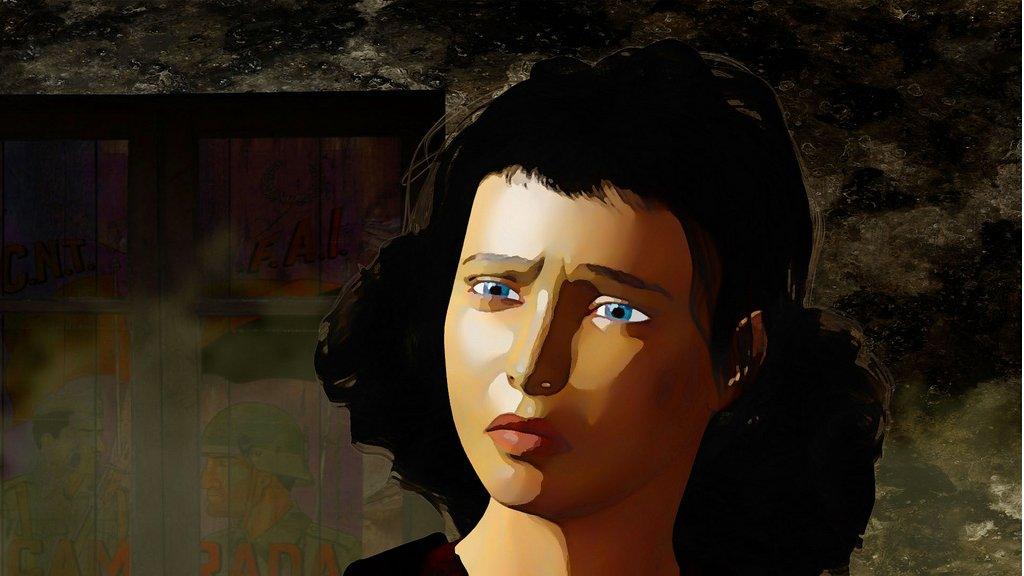Football careers of Southampton's Basque evacuee children remembered
- Published
An exhibition has been set up honouring the 'Children of 37'
Two child evacuees of the Spanish Civil War, who later became professional footballers, are being remembered 85 years after arriving in the UK.
Sabino Barinaga and Raimundo Perez Lezama were among 4,000 Basque children who left Bilbao for Britain in 1937.
Their football talents were spotted while they stayed in Southampton.
More than a dozen of the young refugees went on to play professionally and are the focus of a new exhibition by Spanish club Athletic Bilbao.
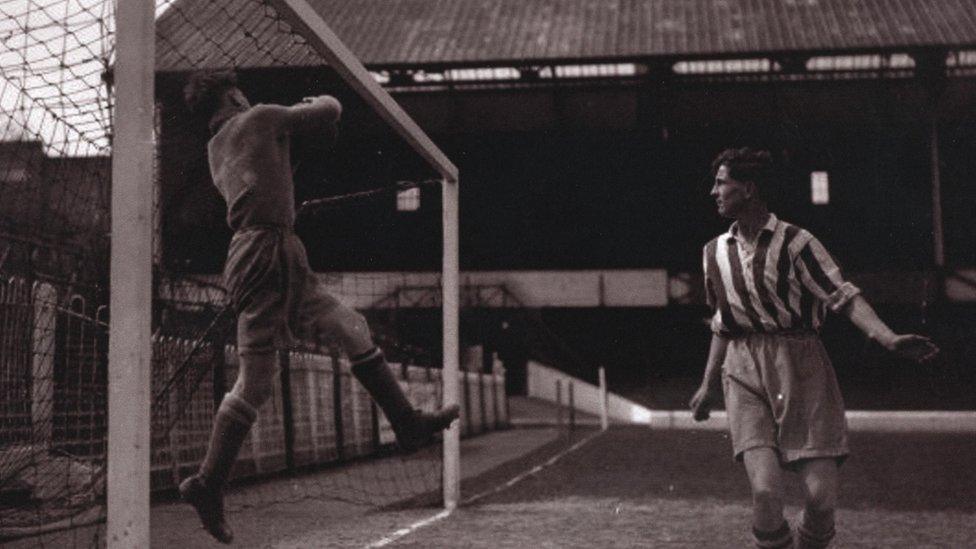
Raimundo Perez Lezama and Sabino Barinaga were both spotted by Southampton
On 26 April 1937 the small Basque town of Guernica was targeted by Franco's Nationalist forces - supported by the German and Italian air forces - in one of the most infamous actions of the Spanish Civil War.
Thousands of families sought protection for their children by sending them overseas - 4,000 were packed on to the SS Habana bound for the port of Southampton.
On arrival the children were housed in a temporary camp on the outskirts of the city at North Stoneham before being transferred to homes - known as colonies - around the country.
Many of the children brought with them a passion for football.
Barinaga and Lezama, who were 14 at the time, were placed at the Nazareth House Catholic orphanage in Hill Lane, Southampton.
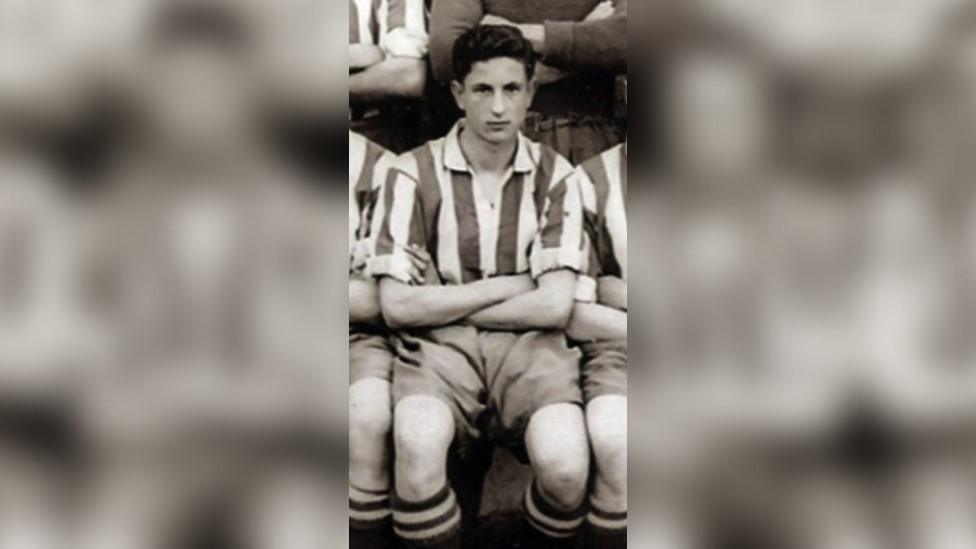
Barinaga scored 62 goals in 18 league and cup matches for Southampton's B team.
Southampton FC historian Duncan Holley said the boys' football careers reputedly began when they went for a walk past the club's nearby ground at The Dell.
"The gates were open and the players were training," he said.
"The story goes that Tom Parker, the manager, threw them a ball and thought 'these boys have a bit of skill'.
"Southampton had just introduced a nursery side. Before they knew it they were in the reserves and even played for the first team."
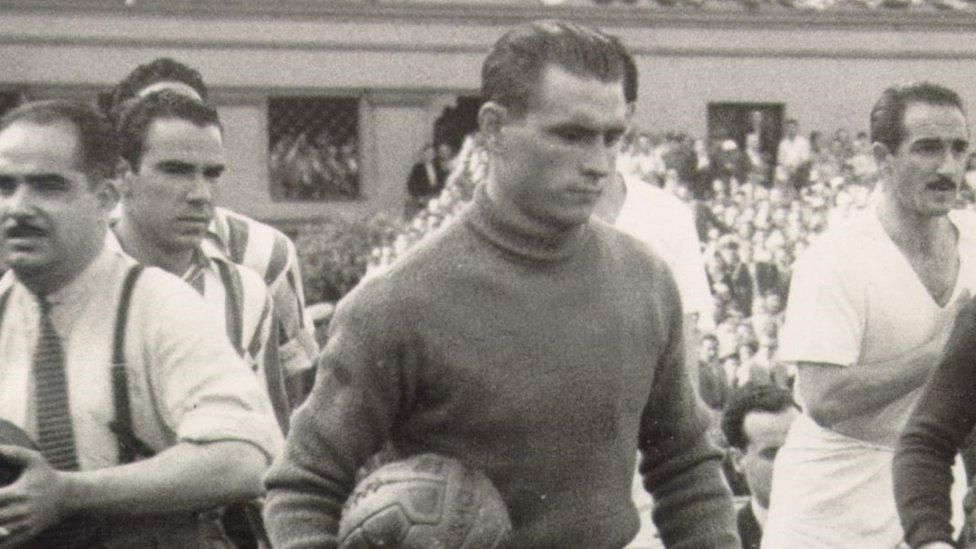
Lezama returned to Bilbao where he played for Athletic Club
As a striker, Barinaga scored 62 goals in 18 league and cup matches for the south-coast outfit's B team.
When World War Two broke out in September 1939 competitive matches were suspended and replaced with so-called war competitions - unofficial leagues set up by the FA.
Barinaga played half a season in those tournaments, scoring a further 22 times in 14 appearances.
Parker described him as "one of the most brilliant youngsters I've ever seen".
'Escaped horrors'
He returned to Spain in 1940 and signed for Real Madrid where he was the Spanish giants' record scorer for a time.
He also became the first player to score at Madrid's Bernabeu Stadium during its inaugural match in 1947.
Barinaga's daughter, Almudena, 66, recalled that her father "very much loved England".
Speaking from her home in Madrid, she said: "Southampton is where he learnt to play football.
"He was really happy, he escaped the horrors of the civil war and could make a living and a future and took care of his family."

Lezama spent 16 years with Athletic Club de Bilbao
His compatriot Lezama also played for Saints first team, as goalkeeper, on three occasions.
He made his debut against Arsenal, aged 17, in the London Combination - an unofficial league made up of players with no permanent military assignment.
He returned to Spain in 1940 and eventually joined Athletic Club de Bilbao, where he became a club legend during his 16 years as a stopper.
He became known for goalkeeping innovations such as leaving the box with the ball at his feet, stopping the ball with his feet from a back pass and distributing it immediately to speed up play.
The two former Saints ended up playing against each other in the 1943 Spanish cup final.
Lezama made a number of crucial saves as Athletic Club de Bilbao beat Real Madrid 1-0.
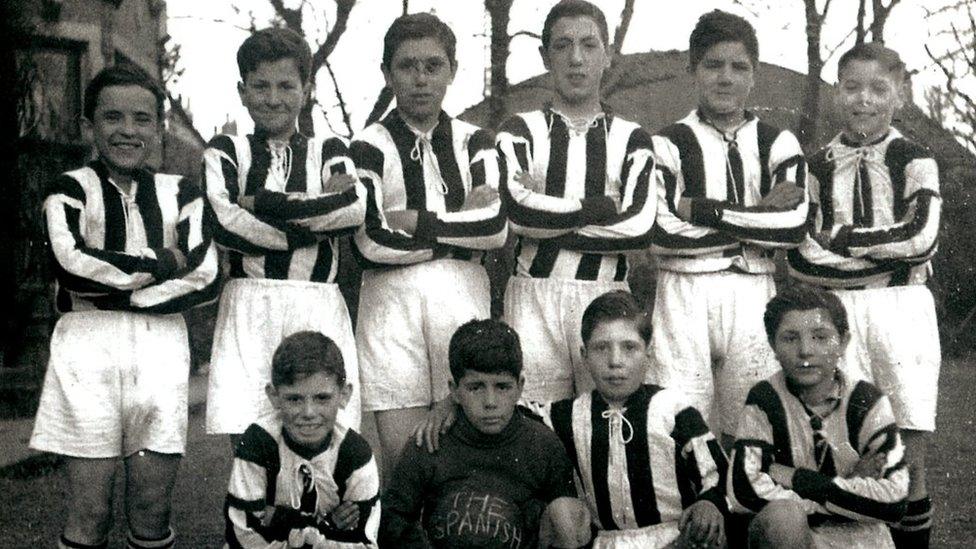
Many of the child refugees brought with them a love of football
Mr Holley said: "They would never have become footballers if they hadn't come to Southampton, gone for that walk and if Tom Parker hadn't thrown that ball.
"It's great to have a connection between the two clubs. We can look back at the Spanish Civil War - a big event in 20th Century history - it had repercussions for Southampton and for Spanish football."
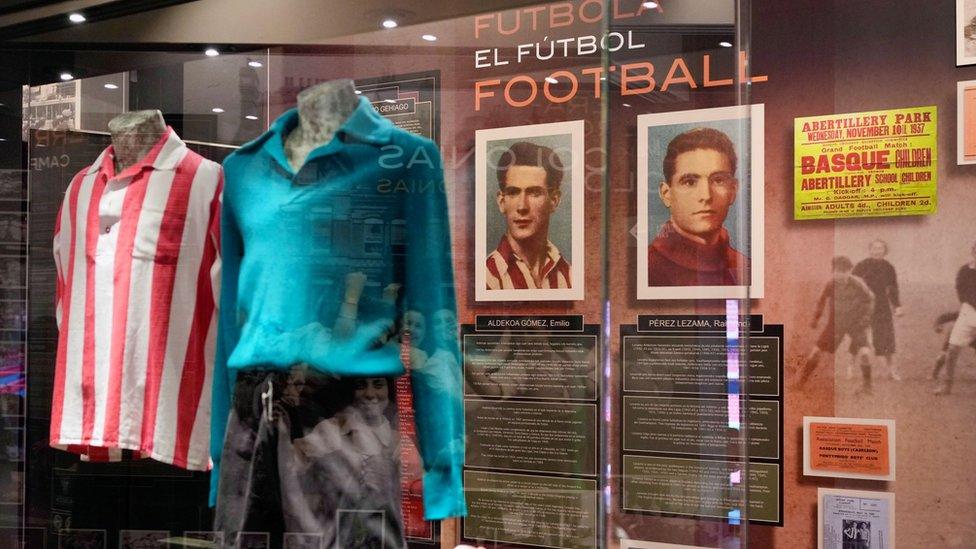
An exhibition at Athletic Club de Bilbao now commemorates the Children of '37
An exhibition staged by Athletic Club de Bilbao - The Children of '37 in the UK - tells the story of the two Saints players, along with the other children who went on to professional football careers in England and Spain.
Emilio Aldekoa went on to play for Wolves and Coventry, before returning to Spain to Athletic Club de Bilbao and FC Barcelona.
He went on to a successful coaching career, during which he was assistant manager at Birmingham City in the early 1960s.
Brothers Jose and Antonio Gallego played for Cambridge United. Jose later made one appearance for Southampton.
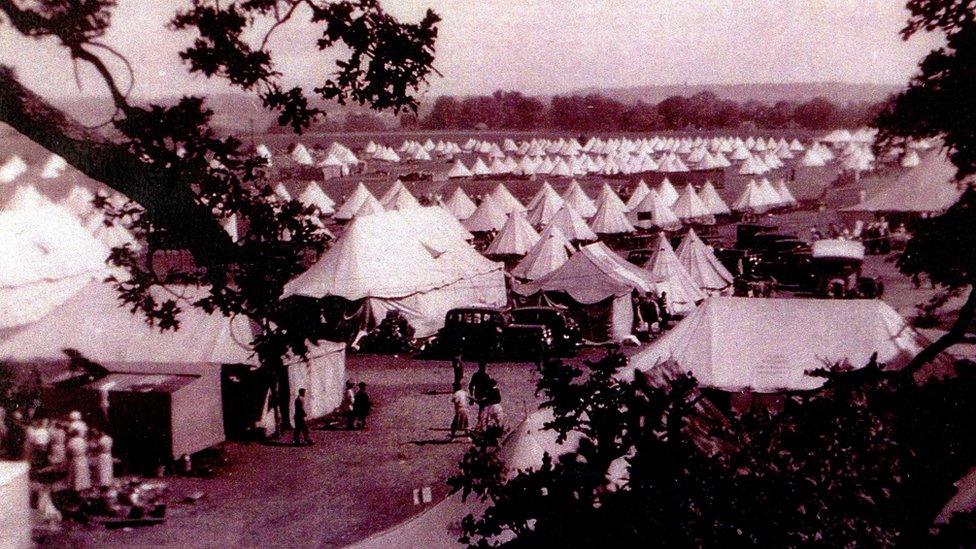
The Basque children were initially taken to a camp at North Stoneham

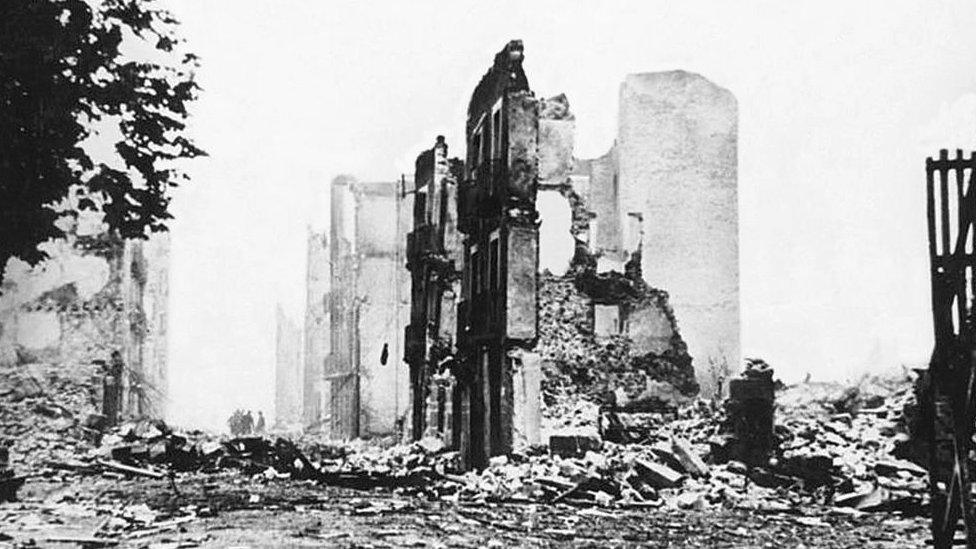
The bombing of Guernica was carried out on 26 April 1937
Spanish Civil War
On 17 July 1936 the Spanish military, supported by right-wing nationalists, stage a coup against the elected Republican government, which was backed by most of the left
Within a few days they achieve control in some parts of Spain while Republican forces put down the uprising in other areas
General Francisco Franco emerges as the main Nationalist leader, while the civil war becomes a proxy war among European powers
Hundreds of thousands of people die before Franco's Nationalists win the war in spring 1939
By 1940 about 470 of the refugees who came on the SS Habana remained in the UK, with some fighting for British forces during World War Two
Sources: National Archives/Britannica/Basque Children's Committee

University of Southampton historian Tom Wardle said: "Southampton made a really big contribution, not just on their arrival. The children often came back and formed a strong collective identity as 'the Basque children'.
"It's all the more important with the recent refugee crisis to remember how children and refugees are perceived, and the role that football can play as well."
The 85th anniversary of the arrival at Southampton of the SS Habana is being marked on 21 May with a ceremony at Southampton Civic Centre.

Follow BBC South on Facebook, external, Twitter, external, or Instagram, external. Send your story ideas to south.newsonline@bbc.co.uk, external.
Related topics
- Published12 June 2020
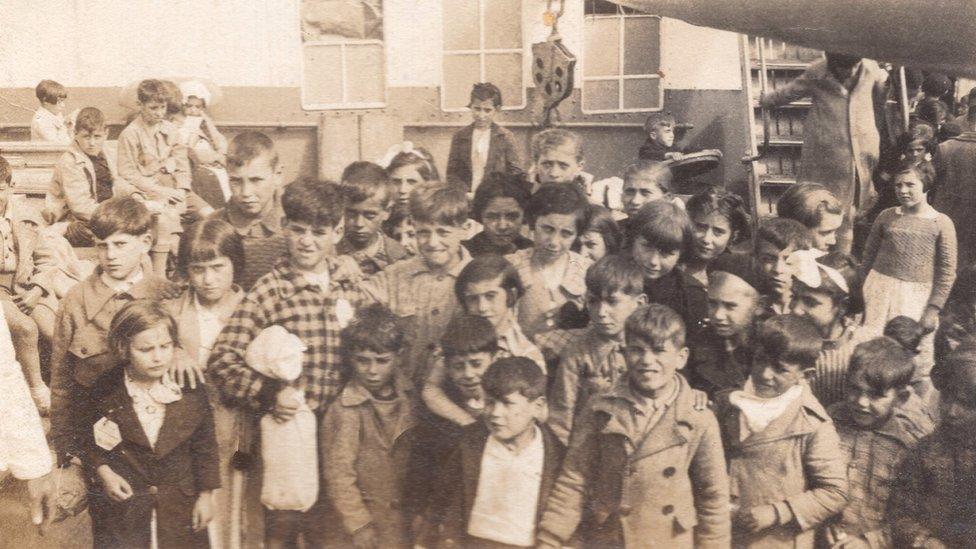
- Published17 July 2016
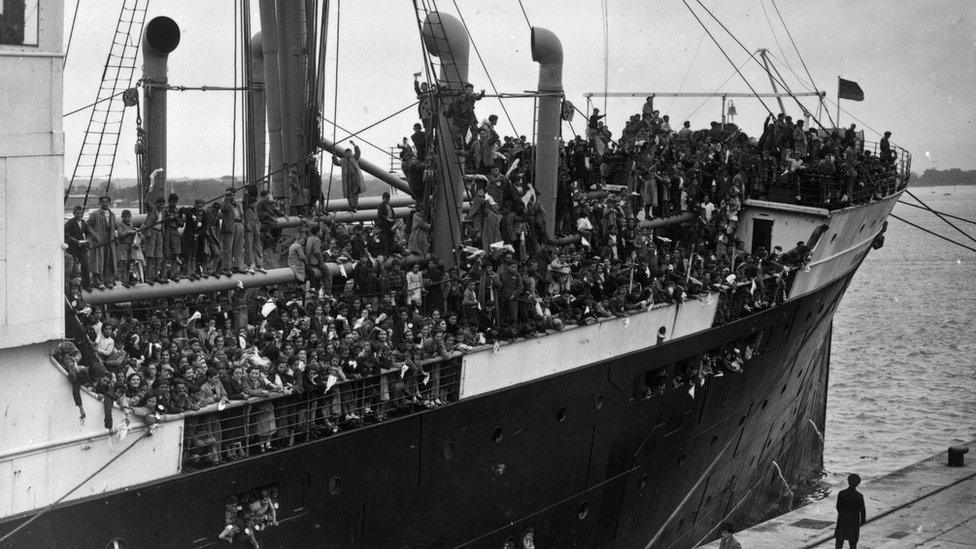
- Published15 September 2012
